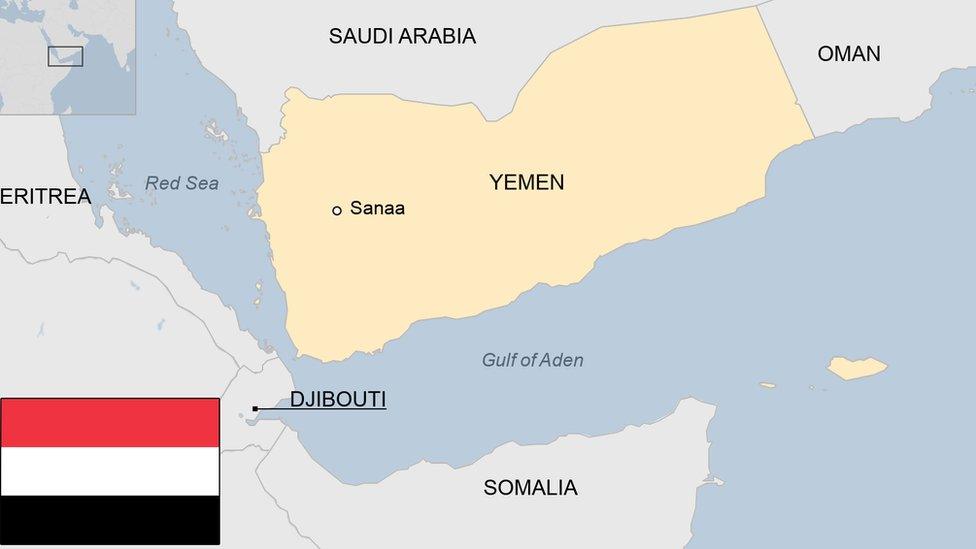In pictures: The Somalis fleeing home from Yemen
- Published
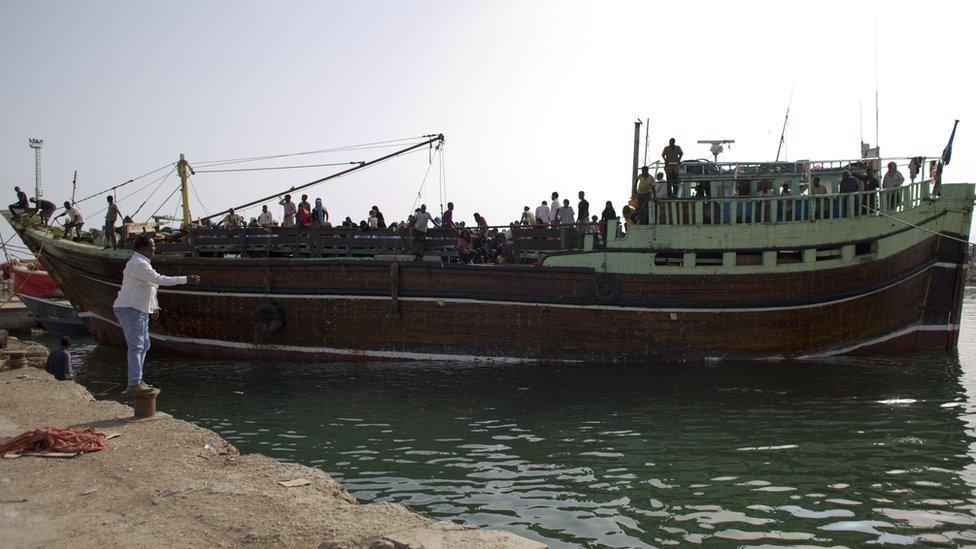
For years many Somalis have fled the instability and fighting in their homeland, crossing the Gulf of Aden to Yemen. But since the start of the Yemeni conflict in March, some of them have been fleeing once more - and returning home in crowded boats that dock at in the northern port of Bossasso.
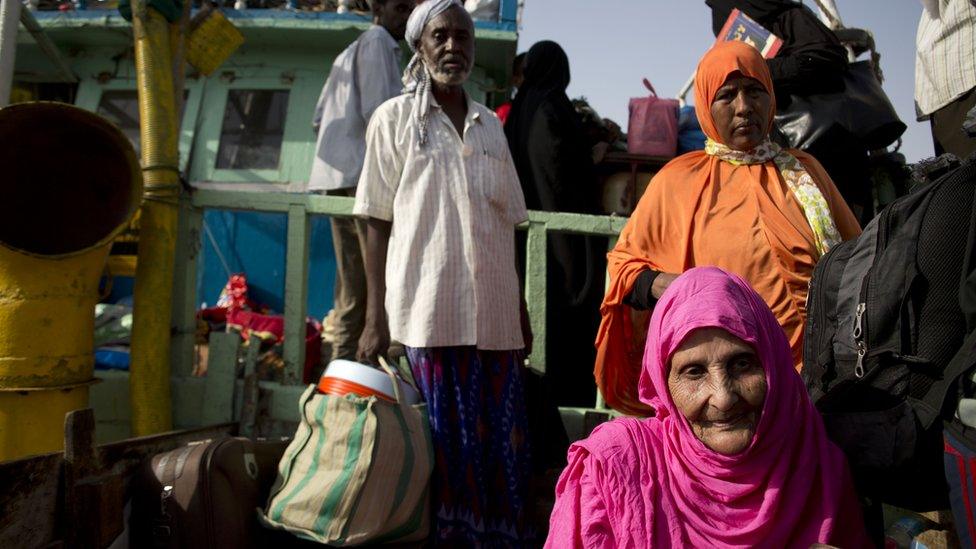
More than 28,000 Somalis have arrived in Bossasso since the conflict between forces loyal to the exiled Yemeni president and those allied to the Houthi rebel movement began.
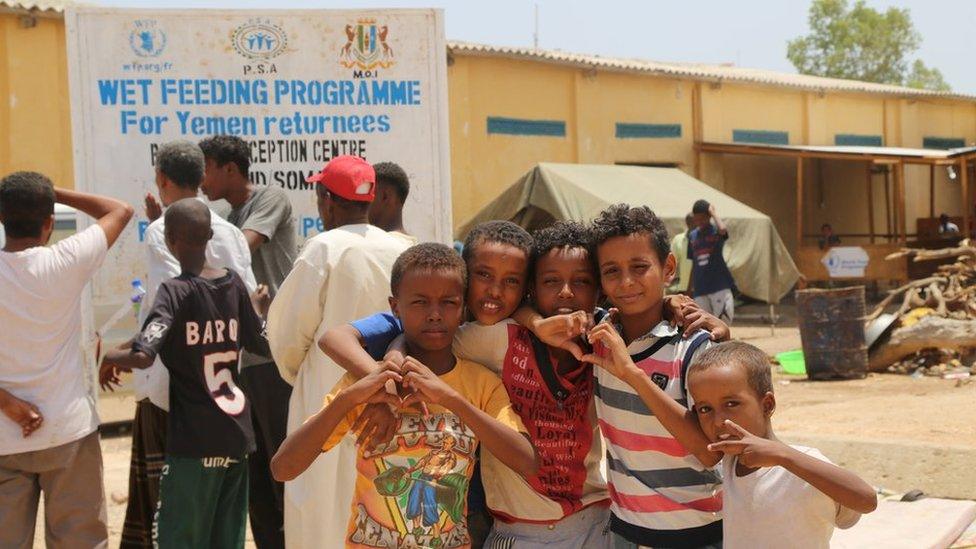
For centuries, there have been close ties between the countries, and Yemen has recently been host to more than 238,000 Somalis refugees. But the destruction of infrastructure and air strikes has led to a humanitarian crisis in the country. More than 40% of returnees from Yemen are children.
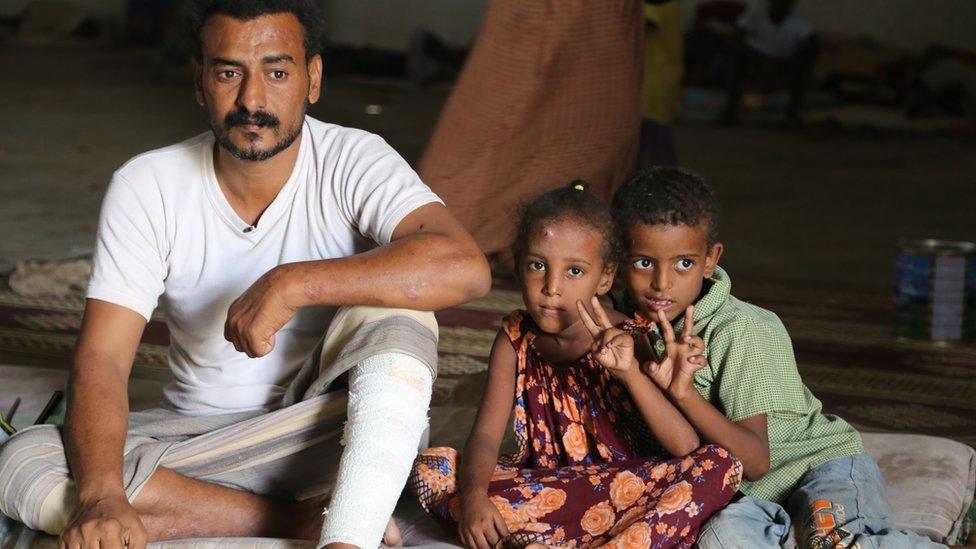
Dalal Ahmed Mohamed Salah is a Yemeni national with a Somali wife. He decided to move his family after his neighbourhood was shelled and he was involved in a head-on collision when he was driving the injured to hospital.
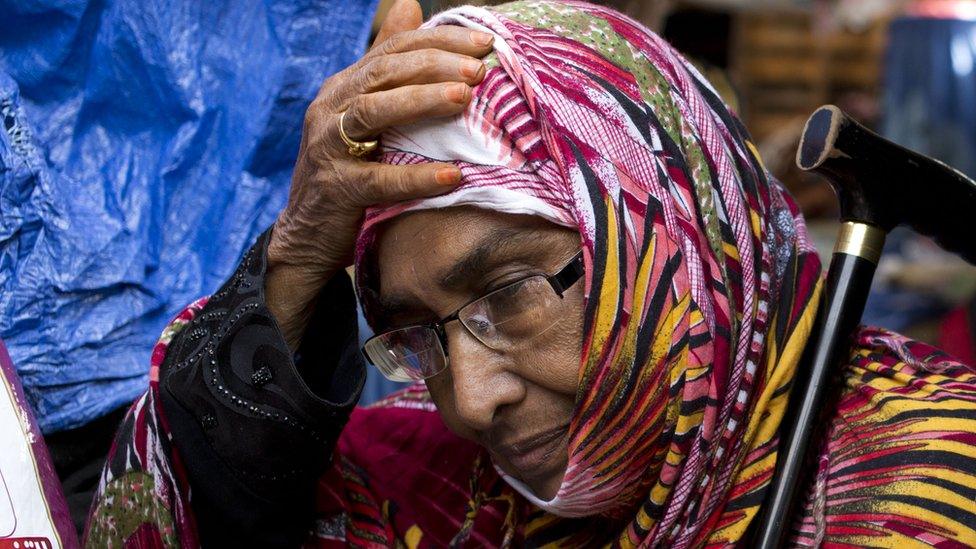
But those returning are not escaping conflict entirely, as Somalia is trying to recover from a two-decade civil war and a UN-backed government is still battling militants from the Islamist al-Shabab group.
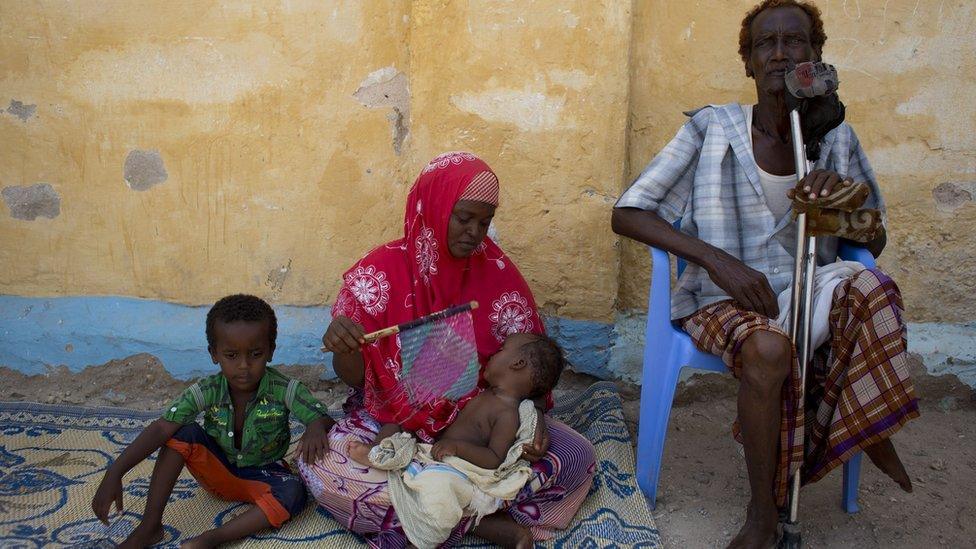
However, over the last few years, with the help of African Union troops, the government has captured the militants' strongholds. Amina Ahmed Osman (pictured) has returned with her family - many returning refugees say the new conflict shattered their dreams of finding a better life outside Somalia.
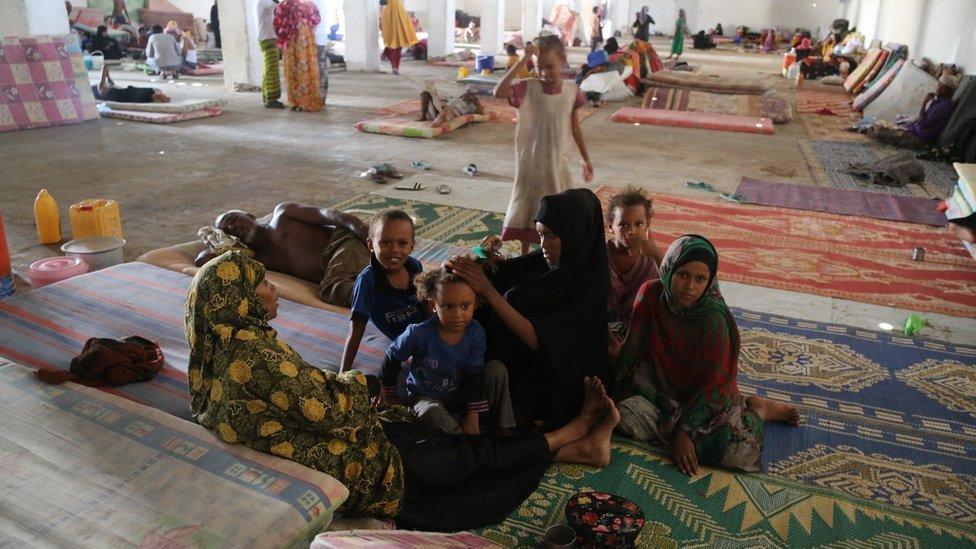
Returnees first stay at a transit centre in Bossasso that used to be a warehouse for the UN's World Food Programme (WFP). After a few days many go to their regions of origin across Somalia. It is mainly rural areas of southern Somalia that are under al-Shabab.
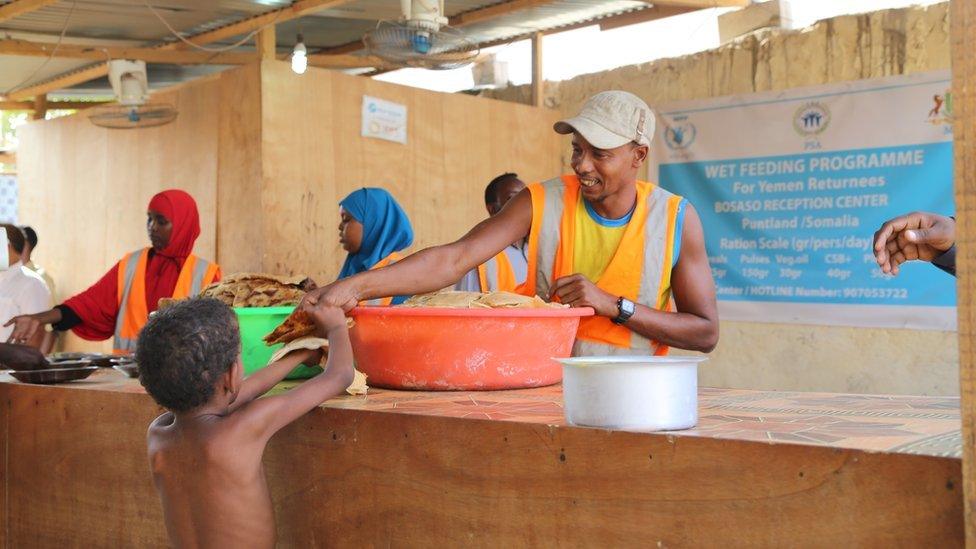
Those returning are being given emergency food by the UN, which estimates that about 855,000 people in Somalia are already in need of urgent assistance and 60% of urban households and 95% of rural households suffer from acute poverty.
- Published14 April 2023
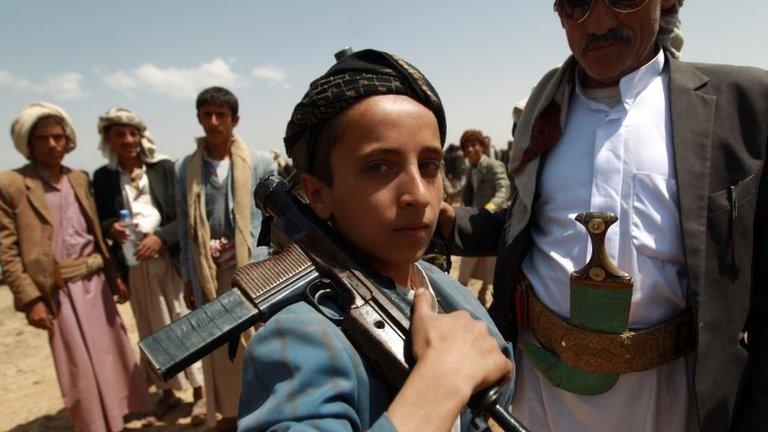
- Published13 February 2024
